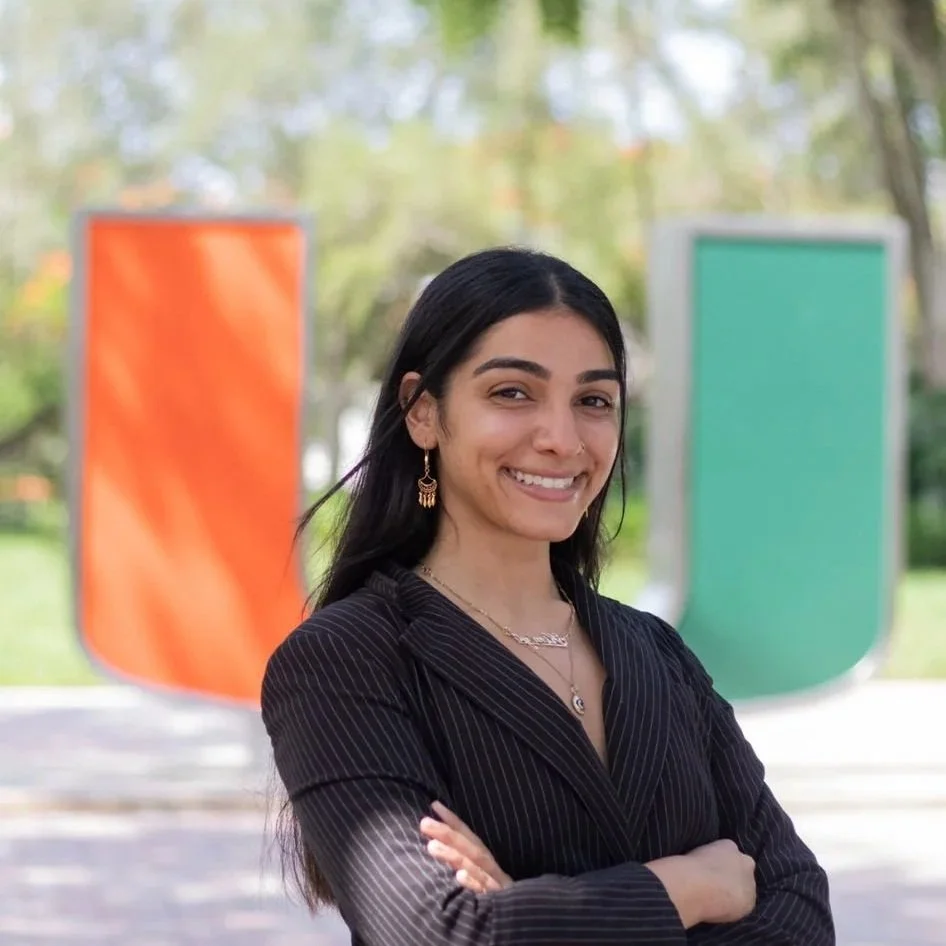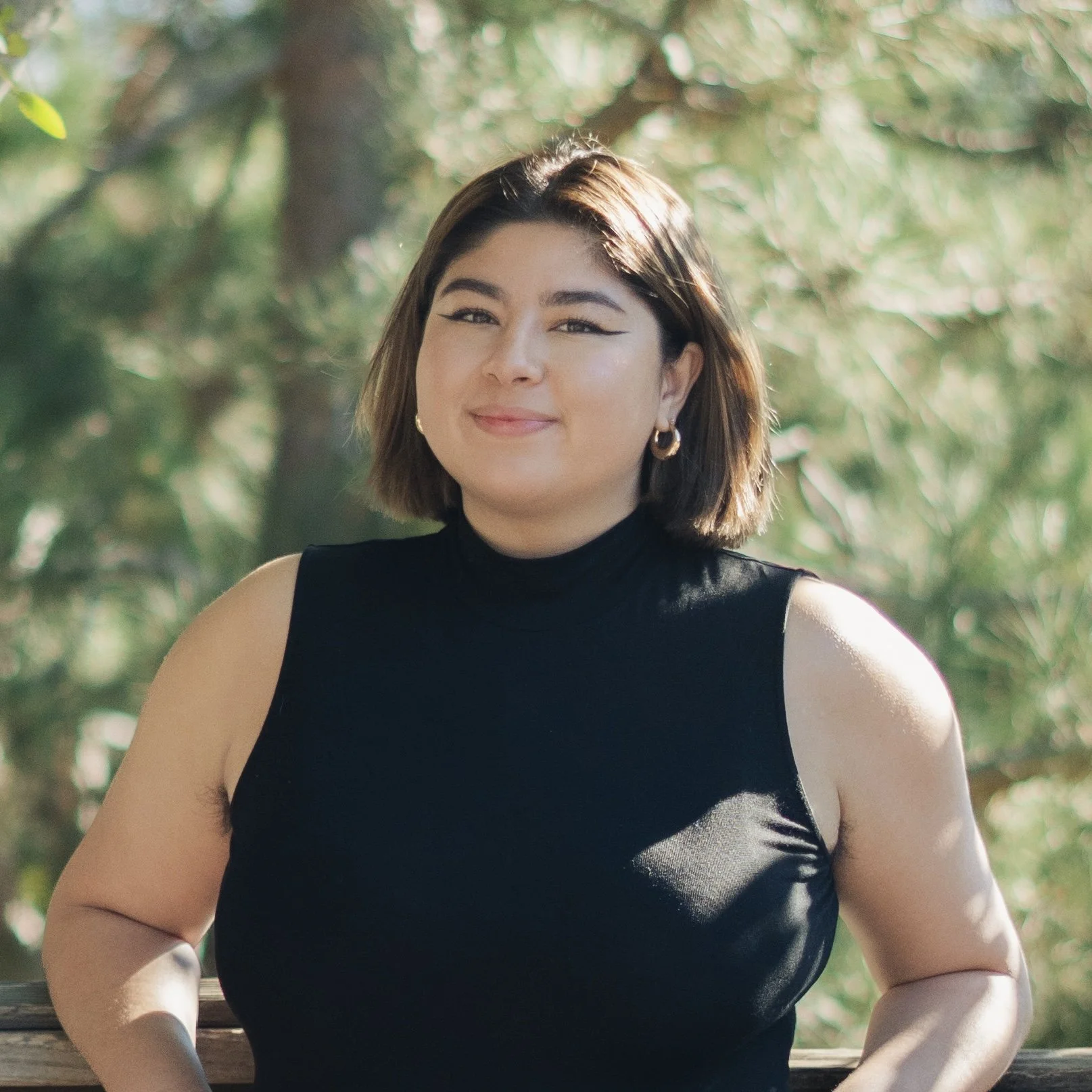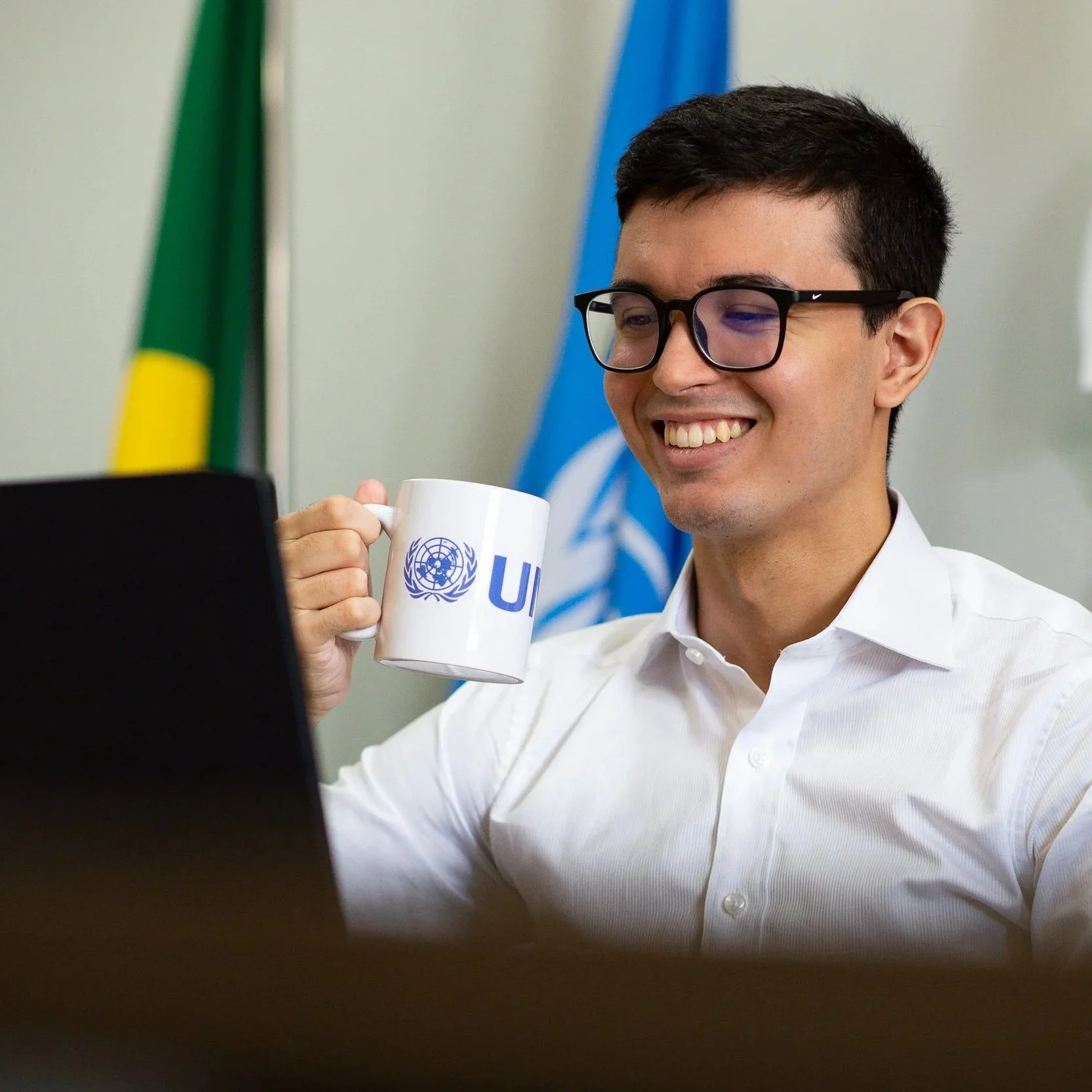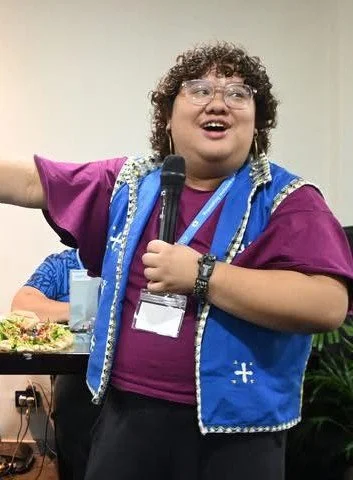Youth from Across the Globe Gather in Belo Horizonte to Prepare for COP30
A call to action from UN SDSN Local Pathways Fellows about meaningful youth empowerment and climate action
Introduction
In preparation for COP30, young people from across the globe gathered both virtually and in person at the Federal University of Minas Gerais (UFMG) in Belo Horizonte, Brazil. Their mission: to draft and deliver a youth climate declaration to Marina Silva, Brazil’s Minister of Environment and Climate Change.
Among the 500 youth climate leaders present were four Local Pathways Fellows from the 2025 cohort. Here, they share their experiences and perspectives on why meaningful youth participation in climate diplomacy is essential for shaping a sustainable future.
Voices from the Local Pathways Fellows
Gelene Lamarroza – Manila, Philippines
I am from the Philippines, where I am oceans apart from my co-delegates. Yet this separation becomes non-existent with the discourse and engagement in our virtual summit. The ideas presented challenged me to introspect my current paradigm and perspective, as problems require me to approach with consideration and inclusion.
The most striking message was the one from the opening: “We do not inherit the Earth from our ancestors, we borrow it from our children.” It is a resounding passage to frame our view on the sessions to put the next generation at the forefront of everything we do hereon.
Henrique Borges – São Paulo, Brazil
As a Brazilian student on Environment and Society, I wanted to connect with other young people to work together on tackling pressing issues such as climate change and biodiversity preservation, especially considering that COP30 will be taking place in Belém, Brazil, at the end of the year.
I was able to support the chapter on Climate Finance and Accountability of the Belo Horizonte Youth Declaration, which is very important to me, especially considering the recent cuts in funding for official development assistance and the current trends in international cooperation and the multilateral system.
Holly Harwood – San Diego, California
As a Vietnamese-American delegate, I came to Belo Horizonte with a clear purpose: to connect with young global leaders who are building innovative solutions. In preparation for COP30 in Brazil, it was crucial to preserve and legitimize the voice of youth leaders, as we are often the ones who are facing the climate crisis and implementing climate goals and policies proposed on global stages.
I also spent my time at GYCS as a speaker on a panel discussing strategies for effective climate justice mobilization across diverse sectors. I served as the lead organizer of the Belo Horizonte Youth Declaration workshop and presentation to the Minister of Environment and Climate Change, Marina Silva.
Kimiya Shirinbar – Miami, Florida
I had the opportunity to attend the Global Youth Climate Conference in Belo Horizonte, Brazil, as an Iranian-American Climate Delegate. Surrounded by inspiring youth leaders from around the world, I collaborated with delegates committed to climate justice. Together, we explored urgent issues like urban sustainability and water conservation.
I contributed to efforts focused on sustainable cities as part of the upcoming COP30 Declaration hosted here in Brazil. My goal was to understand how countries can uplift and champion one another and avoid climate degradation. Being in Brazil reminded me of the strength found in global solidarity and youth-driven action.
The Belo Horizonte Youth Declaration
The Belo Horizonte Youth Declaration is a global call to action from 500 global youth climate leaders. Young people demand transformative, inclusive, and accountable climate action. The document recognizes education as essential for empowering communities, building resilience, and protecting biodiversity. Through this Declaration, we share actionable policy recommendations that reflect the needs of global youth leaders. Young people are spearheading solutions and are the wisdom keepers of intergenerational knowledge. By listening to young people and investing our resources in community-led solutions, we are honoring the present and future generations who deserve a safe, healthy, and flourishing future.
We had the privilege to share our demands live with Marina Silva. These meaningful international spaces reaffirm our commitment to a future led by collaboration, reciprocity, and justice. We call on the ministry, and now you, to help us address our shared priorities urgently, ambitiously, and collaboratively.
Traditional Knowledge in Action
The conference also highlighted the importance of leveraging indigenous and traditional knowledge to promote sustainable solutions that help address climate change. Some of the issues discussed during the event, especially among the young delegates, included the indigenous rights to their ancestral land and self-determination, and their role as protectors of nature.
The diverse range of backgrounds allowed delegates to exchange traditional knowledge, presenting local solutions to some of the most pressing global issues of our time. Reflecting this, the Youth Declaration included a chapter on traditional knowledge, which calls on governments to engage meaningfully with indigenous communities in co-creating climate responses, investing in the promotion of scientific knowledge to traditional culture bearers, and supporting nature restoration through economic policies that ensure compensation for environmental damage.
The event also included a field trip to the Inhotim Institute, one of the largest open-air museums in the region. There, delegates were able to engage directly with preserved sections of Minas Gerais’ biomes and participated in lectures led by Dr. Geraldo Fernandes, one the world’s leading experts in biodiversity, who highlighted the urgent need for protecting natural ecosystems and reinforced the importance of advancing the Kunming-Montreal Agenda, emphasizing meaningful youth participation and ecological stewardship as central figures to climate action.
Meaningful Youth Participation
Beyond statements and demands, young people are taking the lead in our communities. Whether we receive additional resources or not, we are driving the solutions our communities need. Many SDG goals are seeing slow progress and cases of backsliding. By aligning our goals with young people who are already taking action, we can power the next generation of climate solutionists.
One of the pillars of the UN Sustainable Development Goals is to “Leave No One Behind”, yet youth are being silenced and sparsely funded with 0.76% of climate mitigation funding from the world’s largest global foundations. The disinvestment in young people, education, and climate action is a burden we all share. Meaningful youth participation begins when our expertise is valued, applied, and harnessed.
Intergenerational Collaboration
Goals with a lack of investment are empty promises waiting to be fulfilled. Solutions, young people, and communities are ready for the implementation of policy goals and investment. The Belo Horizonte Youth Declaration acknowledges this gap and seeks to bridge our shared interest in building a sustainable future with other generations who hold institutional power.
We invite you to help bring the Belo-Horizonte Youth Declaration to decision-making discussions, consider youth partnership, and answer our call for international relationships and climate solutions.
Conclusion & Call to Action
The Belo Horizonte Youth Declaration is a roadmap for urgent climate action and a call for solidarity. Youth are ready to lead, but we cannot do it alone. Governments, institutions, and civil society must answer this call with resources, trust, and collaboration.
📄 Download the Belo Horizonte Youth Declaration
📩 For partnerships, reach out to: hharwood@ucsd.edu
MEET THE AUTHORS

Kimiya Shirinbar
Kimiya Shirinbar holds a master’s degree in Sustainable Business and serves as a Pilot Project Fellow at Miami-Dade Innovation Authority. As a selected delegate for the Global Youth Climate Conference 2025, she leverages social media and digital platforms to advocate for climate resilience. She also co-hosts The Sunbelt Sisters podcast, providing insights on sustainability, business, and policy, translating complex discussions into actionable solutions.
View LinkedIn
Holly Harwood
Holly Harwood is a Master’s student in International Affairs at UC San Diego’s School of Global Policy & Strategy. As Chief of Staff at Sustainable & Just Future, she bridges sectors for equitable, community-driven climate solutions. Her expertise spans climate education, just transition, circular economy, climate finance, and public-private partnerships. She co-founded the Southbay Resource Team for disaster relief and serves on the board of Our Time to Act, advancing housing justice for all.
View LinkedIn
Henrique San Martin Borges
Henrique is a Master's degree student in Architecture for Development, driven by his passion for humanitarian work and sustainability. As part of UNOPS, he has contributed to projects related to improving health and educational infrastructure, urbanization in vulnerable communities and international cooperation. Henrique also leads initiatives that promote the 2030 Agenda and advocates for greater youth participation in public policies.
View LinkedIn
Gelene Lamarroza
Gelene is currently pursuing her Master's degree in Urban and Regional Planning and has active engagement in her local organizations for heritage conservation and culture education. She is the founder of Pagkakataon PH, an organization dedicated to empowering Filipino youth by creating and sharing capacity-building opportunities, while also supporting MSMEs in areas ranging from labor initiatives to disaster risk reduction. She draws inspiration from local communities who are proactive in conserving their environment, heritage and their future through sustainable development and multi-sectoral collective action.
View LinkedIn